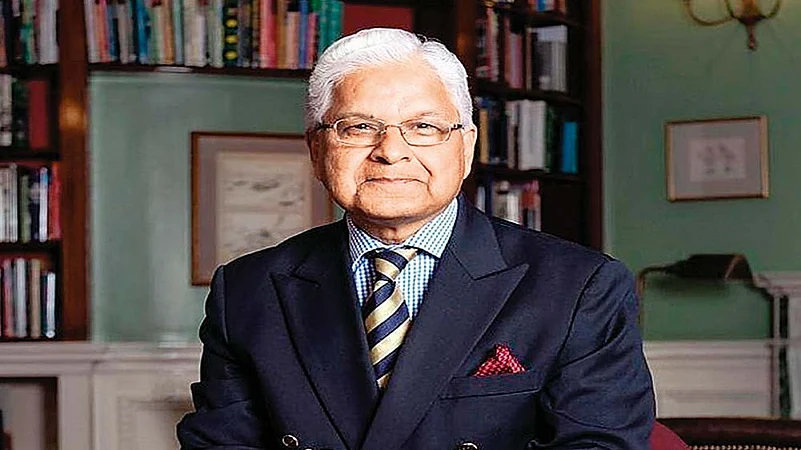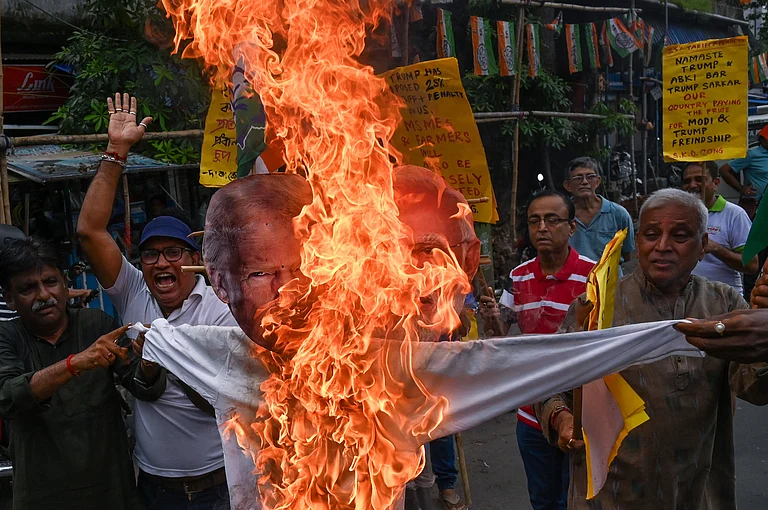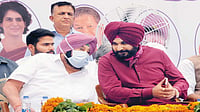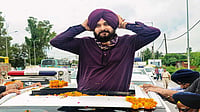Scorched by electoral setbacks in the recent assembly polls, the BJP, under PM Narendra Modi, entered its eighth year in office at the Centre. Hammered by accusations of mishandling the Covid pandemic, wrecking the economy, riding roughshod over independent institutions and stifling all dissent, the BJP appears vulnerable, both nationally and in the states. Yet, its principal political rival, the Congress, continues to grapple with a deepening existential crisis marked by recurring electoral reverses and internal squabbles. Meanwhile, regional satraps like the TMC’s Mamata Banerjee, the CPI(M)’s Pinarayi Vijayan and the DMK’s M.K. Stalin have emerged as the new faces of resistance against the BJP. In an interview to Puneet Nicholas Yadav, senior Congress leader and former Union minister Ashwani Kumar explains the need for his party to effect a much-delayed course correction and why he thinks the Congress must take the lead in forging a broad federal front to take on Modi in 2024. Edited excerpts:
PM Narendra Modi and the BJP are facing the first sustained wave of criticism over alleged mishandling of the Covid crisis, deteriorating social cohesion and a stagnant economy.
History bears testimony to the fact that transformative events such as this pandemic alter the course of politics. The unspeakable misery and despair felt by millions is clearly a reflection of the inept and insensitive handling of an unprecedented humanitarian crisis. The missteps have scarred the soul of the republic, and this was reflected in the assembly polls. In 2024, people’s pain will be expressed through a regime change at the Centre. Economic distress resulting in the alienation of vast segments of our society, particularly farmers and workers in the unorganised sector, speaks for itself. National sensitivities concerning these and the brazen assault on individual freedoms, justice, federalism and democracy will be the cementing factors in forging Opposition unity. The assembly polls show that the PM’s victory run is coming to an end.
ALSO READ: Slippery Old Pivot
Won’t three years be long enough for the BJP to recover lost ground?
Public memory may be short, but wounds inflicted on the national conscience will continue to fester for a long time. 2024 will test the nation’s resolve to vindicate freedom and democracy through a rejection of narrow nationalisms and divisive politics. It could be the year of reckoning for the BJP.
The Congress hasn’t been able to find a full-term president in the past two years. In the states, there is no clarity on who will lead the party if it is voted to power. How can the Congress hope to take on the BJP when it can’t even settle the matter of its central and state leaderships?
We need to promote several leaders in the states to facilitate collective and democratic leadership. As for the central leadership, Sonia Gandhi plays a unifying role in the party. Rahul Gandhi is an untiring crusader in an ideological battle with the BJP despite a relentless campaign of calumny against him. The preeminent leadership of the Gandhis rests on their emotional bond with party workers, which has kept the party united. The question of leadership will be suitably settled when the time comes. For the moment, there is no vacuum and Sonia continues to be president.
The Congress repeatedly fails to win bipolar contests with the BJP, while regional parties perform better. Why is the Congress unable to project itself as a credible alternative?
Despite electoral reverses in recent times, the Congress is the only pan-India party. To win the ideological battle in 2024, we will need to forge a credible coalition anchored in a politics of high purpose and recognition of regional aspirations. A politics of national renewal rooted in issues and not visceral animosities is the only way forward. This ground reality of a vastly altered political landscape has to guide the future course of our politics. For the Congress to play a facilitative role in this process, it needs to strengthen its footprint and recover lost ground, for which purposive steps, including deepening of the democratic process within the party, are necessary. The recent exercise to resolve issues in the Punjab Congress saw an interactive engagement on the widest scale possible, reflecting a deepening of the democratic process.
We have been hearing of the need for course correction since 2014.
The systemic weaknesses that have crept in over the years need to be addressed and correctives applied. We need to factor in shifting ideological preferences and the aspirations of a young but less deferential electorate that is not attached to the past. The Congress has to speak the language of the future, for the future. It needs to continue with a programme of internal revitalisation based on inclusion and a happy blend of experience and youthful energy. We must also continue to reinforce, unapologetically, our belief that the republic’s secular conscience has to be preserved through sustained reaffirmation of its importance in keeping the nation together.
Bengal, Tamil Nadu and Kerala election results showed that strong regional leaders are better equipped to fight the BJP. Can regional parties build an anti-BJP federal front and what role can the Congress play in it?
The Congress will work to facilitate unity of all regional parties in a larger political fight in defence of the idea of India. Of course, the Congress must also continue to strengthen itself and increase its voteshare to serve as the national alternative pole to the BJP.
How will the Congress increase its voteshare while simultaneously facilitating a broad coalition of regional parties?
While the Congress must discharge its obligation of facilitating a truly united Opposition, it is naïve to expect the party to write its own epitaph. Our alliances in various states have, over time, constricted our space. If the Congress loses its political heft, then its role as facilitator of a federal front also withers away.
Many of your allies see you as a liability.
Had the DMK in Tamil Nadu or the RJD in Bihar written off the Congress, they would not have entered into an alliance with us. The nation is looking to the Congress for becoming a fulcrum of Opposition unity. All parties need to shed personal preferences and prejudices to achieve a larger national goal.


























